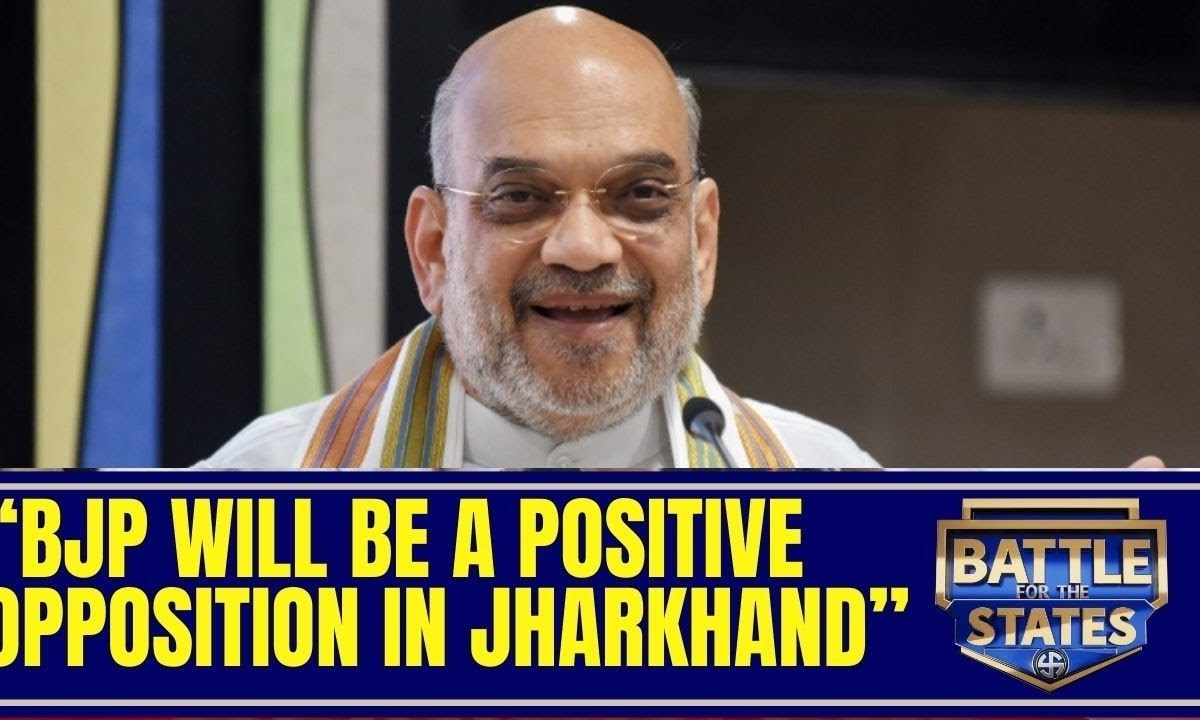Last Updated:November 23, 2024, 18:03 IST
According to senior BJP leaders in Jharkhand, sections of the 'Christian-dominated and converted tribal population' influenced the elections to a great extent, while the party's decision not to project an Adivasi as the chief ministerial face also cost it dearly

JMM and Congress workers celebrate INDIA bloc's decisive lead amid the counting of votes for the Jharkhand assembly elections, at the JMM office, in Ranchi on November 23. (Image: PTI)
Announcement of a proposed Uniform Civil Code (UCC) followed by an anti-infiltration pitch—the Bharatiya Janata Party’s hardline narratives failed to resonate with the tribal voters of Jharkhand in this month’s assembly elections as results were announced on Saturday.
According to senior BJP leaders in Jharkhand, sections of the “Christian-dominated and converted tribal population" influenced the elections to a great extent, while the party’s decision not to project an Adivasi as the chief ministerial face also cost it dearly.
The combination of a proposed UCC and an anti-infiltration stand made the tribal voters jittery, said observers. As the results trickle in, of the 28 Scheduled Tribe seats in the state, the BJP is leading in six to seven, while the rest are likely to go to the INDIA bloc parties, primarily to the ruling Jharkhand Mukti Morcha. In 2019, the BJP won only two ST seats, while JMM bagged 21 and the rest went to its allies.
The results reflect how the BJP-RSS combine is still struggling to make headway among its erstwhile tribal support base, as the saffron party’s policies are making the tribal population feel more alienated in the region, observers said. Despite choosing a tribal face as the chief minister in Odisha a few months ago, the political strategy failed to strike a chord among the Adivasi population in Jharkhand.
Anti-infiltration pitch bombed
The state’s tribal population, which dominates at least 28 seats while playing a decisive role in at least half a dozen others, has always been deeply rooted in cultural and customary practices. They reacted warily to the BJP’s UCC pitch, viewing it as a threat to their traditional rights, the results indicate.
“Factors such as the announcement of the UCC, which created unease among the state’s tribal communities, especially the Christian tribals, the lack of a compelling tribal leadership post-Babulal Marandi and Arjun Munda’s declining influence, and the inability to present infiltration as a macro-level threat played against us," said a senior BJP leader on condition of anonymity.
This fear overshadowed the BJP’s emphasis on issues like infiltration, which failed to connect with the voters at a local level. Unlike in West Bengal or Assam, where infiltration has been perceived as a tangible demographic and socio-economic issue, Jharkhand’s electorate did not see it as a pressing concern, especially in the absence of visible impacts in tribal-dominated regions.
“Our pre-election ground-level surveys hinted at such things and we communicated this to our central leadership. The selection of candidates in some places also created a huge furore," the BJP leader added.
Leadership vacuum
Adding to the BJP’s challenges was the absence of a strong and charismatic tribal face to counter the Hemant Soren-led alliance. Arjun Munda, or Babulal Marandi, once stalwart leaders for tribal representation within the BJP, seemed to have lost their appeal across key regions, leaving a leadership vacuum.
Sympathy for chief minister Hemant Soren following his arrest and other corruption probes coupled with factional attacks further consolidated the tribal vote against the BJP, said the leader.
Location : First Published:November 23, 2024, 18:03 IST
News elections Why BJP’s 'Infiltration' And 'UCC' Tactics Tanked In Jharkhand Elections

 3 hours ago
3 hours ago














